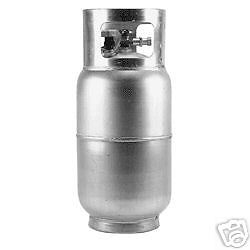
Propane forklifts tend to have lower operating costs and offer greater reliability than other types of lifts. In terms of forklift options, many companies prefer propane because it is clean, affordable, and emits no odor. It differs from comparable lifts, however, in that it relies on propane for fuel. What Is A Propane-Powered Forklift?Ī propane-powered forklift operates in a similar fashion to other types of lifts. Now, let’s answer some of the key questions surrounding forklift propane safety. But do forklifts run on propane? Yes, they do. Gas-powered forklifts are less common than diesel-powered forklifts but share many of the pros and cons.Forklifts run mainly on gasoline, diesel, or electricity. These machines are the go-to outdoor forklifts for heavy-duty applications, such as heavy manufacturing, lumberyards and construction. Need a bigger, more powerful forklift that can work on a slope? Renting a diesel or gas forklift is the way to go. Less power and torque than diesel or gas models.May be difficult to start in cold weather.
#Forklift propane tanks drivers#
A clutch is used to slow traction speed so you may need to train drivers on loading and off-loading.More moving parts increase maintenance costs compared to electric.Propane is volatile and can leak from tanks if tanks are punctured.More power, greater torque and superior runtime than electric.Fast refueling (replacing a sealed propane tank takes five minutes or less).Can be used for work indoors or outdoors, even on inclines.If you're considering renting a propane forklift, weigh these pros and cons. Propane forklifts come in many sizes and capacities and are used in trucking and logistics, manufacturing and large warehouses. Liquid propane (LP) powers the internal combustion engine. Batteries require recharging, which can slow down work and diminish runtimeįor quick refueling and low emissions, propane forklifts deliver.Heavy-duty work may require more expensive batteries.Higher costs than propane and diesel forklifts, and charging bays, chargers and tools for removing large batteries add to the costs.Most electric forklifts not rated for outdoor use.Performance not affected by cold temperatures needed for cold storage.Less vibration, which reduces operator fatigue.Less downtime due to fewer moving parts and the absence of engine oil, coolants, filters and fuel.Controls are basic and easy for operators.Maneuverable to turn around sharp corners in aisles.More compact than propane or diesel thanks to the lack of an internal combustion engine.Newer electric models rely on lithium-ion batteries, which are the lightest option. Many heavy-duty forklifts still rely on lead-acid batteries because these heavy batteries - weighing between 800 and 4,000 pounds - serve as a counterbalance to the material being lifted. If “battery-powered” makes you pause, consider this: Sealed lead-acid batteries have better starting power, recharge more quickly and have lower maintenance costs than older lead-acid batteries. Electric-powered forklifts are often used to lift and transport materials in industrial or warehouse settings, especially in cold-storage facilities for food and medical equipment. Will the work happen mainly inside or outside? Is moving heavy pallets the most important need, or will the operator be using attachments to do other work? What is your budget?įor indoor work, consider renting an electric forklift. When looking for the right rental forklift, start by thinking about the tasks the forklift will be used for. Electric, diesel, gasoline and propane forklifts all have their advantages and disadvantages. You need to decide the best power option for your site and project.

Pallet jacks and side loaders are ideal for narrow aisles. For example, if you’re working in a warehouse, knowing the aisle width and/or common pallet dimensions will help to determine the size and type of forklift to rent. In addition to capacity, you’ll need to consider the forklift’s dimensions in relation to the space restrictions of the jobsite. Large warehouse forklifts: With load capacities up to 50,000 pounds, large forklifts can handle heavy-duty applications. Medium warehouse forklifts: 6,000-pound warehouse forklifts to 15,000-pound forklifts and are suitable for medium-duty to heavy-duty material handling. Small warehouse forklifts: A 3,000-pound warehouse forklift or a 5,000-pound forklift can handle light-duty to medium-duty jobs around a warehouse or other industrial site. United Rentals offers forklifts with a wide range of maximum capacities, including: In the case of forklifts with telescopic booms, consult the load chart to figure out the forklift’s load capacity.

It’s common for people to underestimate the capacity of the forklift they need, so when in doubt, go for a large forklift rental. Think through what materials you plan to lift (single pallets? heavy containers? wood?) and the heaviest loads you’ll need to lift.


 0 kommentar(er)
0 kommentar(er)
